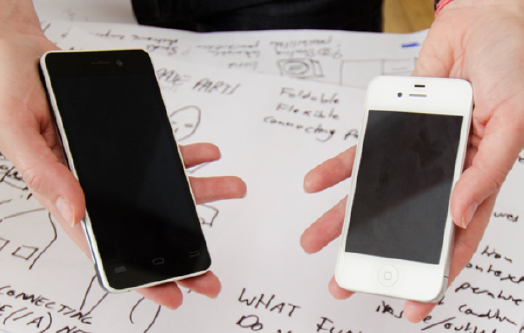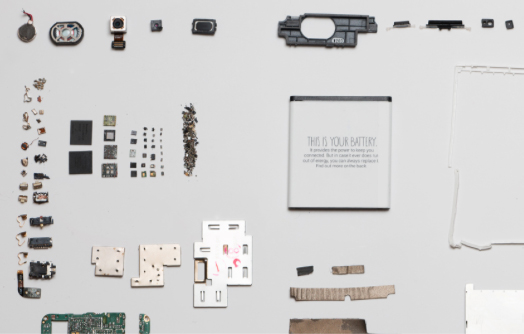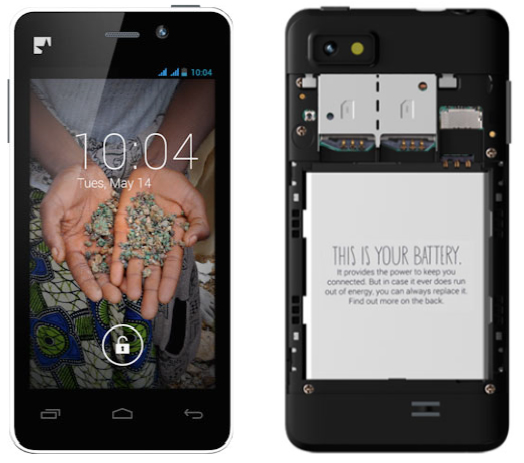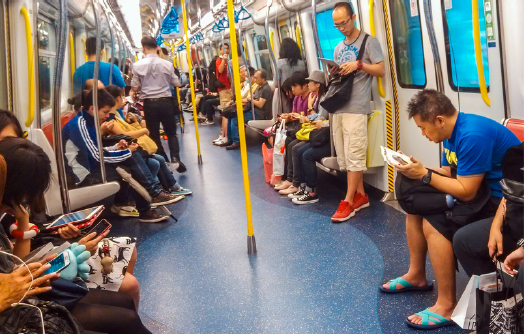Which Is the Fairest Phone of Them All?
A Phone With a Conscience
With the popularity of Fair Trade Coffee and Fair Trade Clothing, which ensure that workers are fairly compensated and that the communities that produce the goods are sustainable, it does seem to be time that some socially conscious entrepreneur would launch a social enterprise for an electronic good. Amsterdam-based Fairphone did just that. The company's mission is to 'bring a fair smartphone to the market—one designed and produced with minimal harm to people and planet'.

Fairphone started in 2010 as a joint project with Waag Society (a socially innovative institute for art, science, and technology), Action Aid (an international development organization working to address justice and poverty issues) and Shrijf-Shrijf (a communications firm) to raise awareness about conflict minerals in electronics and the wars that they fuel and fund in the Democratic Republic of Congo. In 2013, the company became an independent social enterprise with the purpose to design and produce the first smartphone aimed to be ethical at every step of the phone's life cycle including sourcing, production, distribution and recycling.

How Is the Phone 'Fair'?
Fairphone focuses on five impact areas: mining, design, manufacturing, life cycle, and social entrepreneurship. Every cell phone contains about 40 minerals, each contributing to a different function of the phone. Fairphone sources these minerals to support local economies and not from armed militias. In the design, the company tries to extend the longevity of the phone by using a less complicated design that the consumer can better understand. It also makes it more possible for the phones to be repaired, even allowing consumers to buy repair parts, and thus extending the lifespan of the phone. When selecting a manufacturing partner, Fairphone requires that the partner commit to certain social and environmental standards such as ensuring worker representation, safe working conditions and fair pay.
Beyond the Phone
As mentioned before, the design of the phone takes into consideration the lifespan of the phone. The company encourages consumers to recycle their phones at the end of use. It also supports and establishes initiatives that provide safe recycling programmes, and collects and safely recycles e-waste. Finally, Fairphone's ambition as a social enterprise is not only to manufacture a socially responsible phone. It aims to give the consumers a better understanding of where products come from and how they are made through directly engaging with consumers to start discussions about fairness.
In Contrast to Apple's Manufacturer
Foxconn Technology Group, Apple's main global contract manufacturer run by Taiwanese tycoon Terry Gou and employing 1.2 million workers in China, has come under fire in recent years for running massive 'sweatshops' to mass produce high-end iPads and iPhones. In particular, high suicide rates among workers who live in residential campuses run by Foxconn have been highly publicized in social media.

Earlier this year, the US-based Fair Labor Association (FLA) conducted a high-profile and extensive probe of Foxconn's China factories. The report, released in March 2014, and based on 35,000 worker interviews, revealed many labour violations including extreme work hours and unpaid overtime. As a result of the report, Apple and Foxconn pledged major improvements including cutting workloads, improving safety protocols and upgrading workers' housing and quality of life.

Early Success Amid Criticism
Fairphone's launch has been successful. The initial production run of 25,000 was sold out by January 2014 and by December 2014, a total of over 58,000 phones were sold. It also won numerous awards and increased its number of employees to 38. However, there are also criticisms about its sourcing and manufacturing practices.
Critics have raised the issue that not all the tin used in the Fairphone is confirmed to be conflict-free or from the Democratic Republic of Congo, as the company claims. Certification of the mines and of the transport path are difficult in the countries where these material come from, which are stricken by civil war and poverty. This makes it fairly impossible to confirm that all materials used by Fairphone are in fact from conflict-free sources.
Further, Fairphone's manufacturer, A'Hong in China, pays workers minimum wage plus overtime compensation, not exactly a living wage. Workers reportedly still work 60 hours per week, which is typical for the industry, but certainly not 'fair' by world standards. The irony is that because of the low wages, most workers opt to work longer hours.
Fairphone does contribute about 4 Euros per device into a worker welfare fund, which is unique in the industry. With a small team and small sales numbers compared to other smartphones, Fairphone's influence on the industry is still not significant. However, even with the criticisms and the relatively small impact, this initiative is nevertheless a start, a step towards phones that have a conscience.


